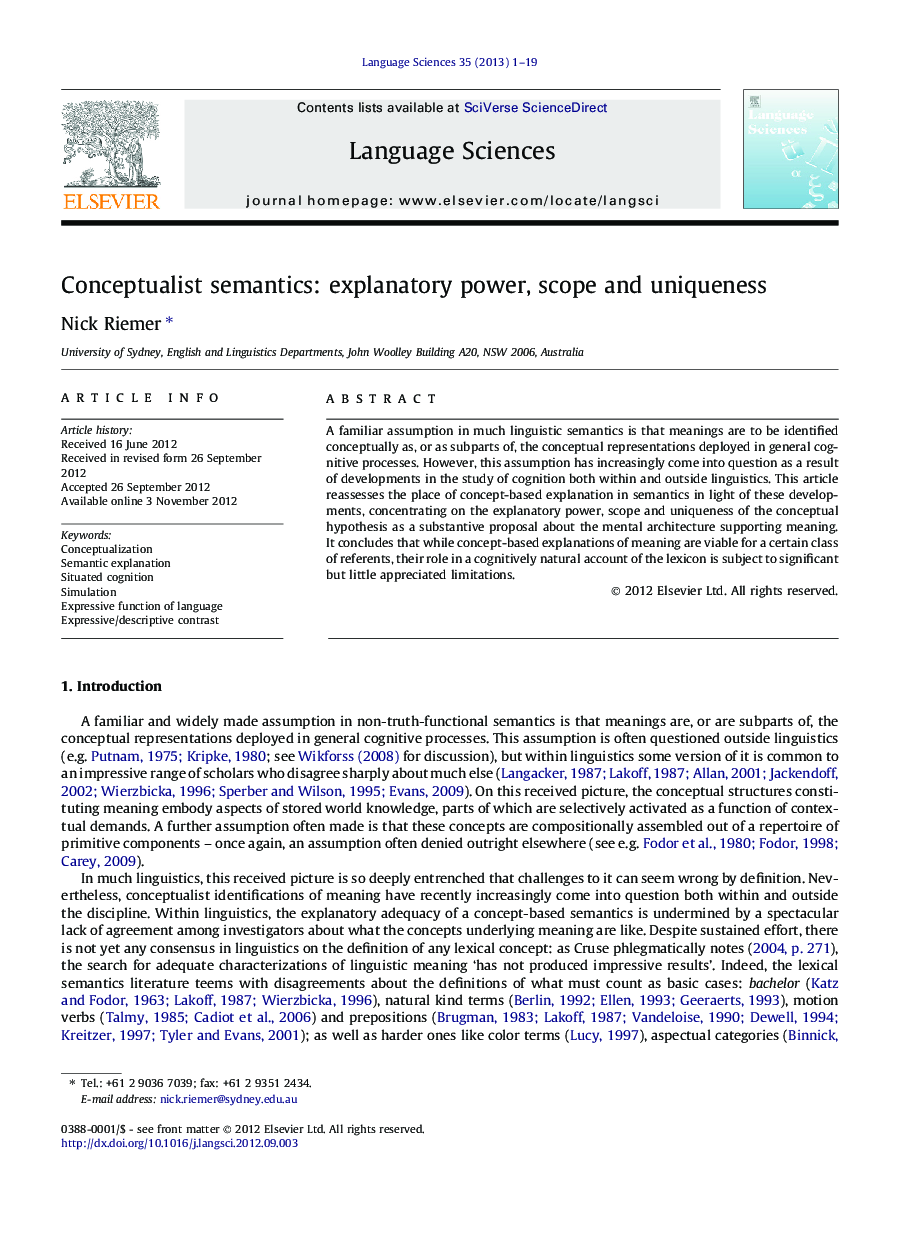| Article ID | Journal | Published Year | Pages | File Type |
|---|---|---|---|---|
| 1103339 | Language Sciences | 2013 | 19 Pages |
A familiar assumption in much linguistic semantics is that meanings are to be identified conceptually as, or as subparts of, the conceptual representations deployed in general cognitive processes. However, this assumption has increasingly come into question as a result of developments in the study of cognition both within and outside linguistics. This article reassesses the place of concept-based explanation in semantics in light of these developments, concentrating on the explanatory power, scope and uniqueness of the conceptual hypothesis as a substantive proposal about the mental architecture supporting meaning. It concludes that while concept-based explanations of meaning are viable for a certain class of referents, their role in a cognitively natural account of the lexicon is subject to significant but little appreciated limitations.
► Sketches an account of the role of concepts in current semantic analysis. ► Conceptual explanation works best for perceptible aspects of the external environment. ► Situated and simulation theories of cognition challenge the conceptual hypothesis. ► Concept-based explanation fails for expressive and evaluative vocabulary. ► Concepts should play a smaller role in semantics than is often assumed.
